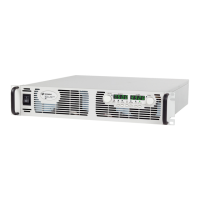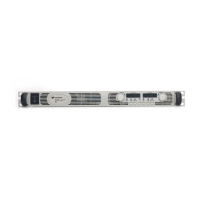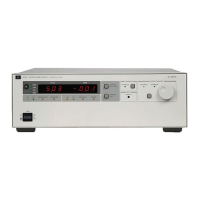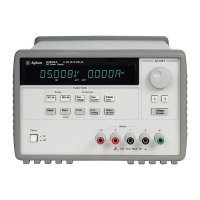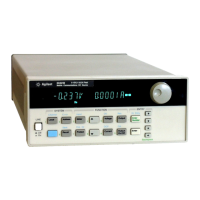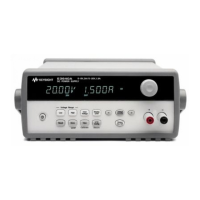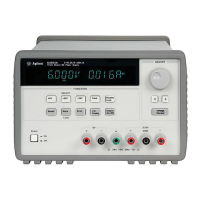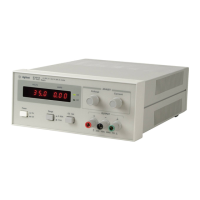6 Language Dictionary
104 Series N6700 User’s Guide
SYSTem:ERRor?
This query returns the next error number and its corresponding
message string from the error queue. The queue is a FIFO (first-in,
first-out) buffer that stores errors as they occur. As it is read, each
error is removed from the queue. When all errors have been read, the
query returns 0, “No error”. If more errors are accumulated than the
queue can hold, the last error in the queue will be -350, “Too many
errors” (see Appendix D for error codes).
SYSTem:GROup:CATalog?
This query returns information about channels that are grouped. The
defined groups are enclosed in quotes. For example, the returned
string “1,2,3”, “4” indicates that channels 1, 2, and 3 are grouped.
Channel 4 is not grouped, as it appears by itself in the quote string.
SYSTem:GROup:DEFine (@<chanlist>)
This command defines a list of output channels as a paralleled group.
This effectively creates a single output with higher current and power
capability. You can group up to four channels per mainframe.
Channels must have identical model numbers and options installed.
After the channels are wired in parallel and defined as a group, they
can be addressed using any of the channel-specific SCPI commands
by sending the channel number of the lowest channel in the group.
Group channel lists are stored in non-volatile memory and are
unaffected by *RST or *RCL. But the group channel settings (voltage,
current, etc.) are set and saved by *RST or *RCL.
This command deletes any previously saved states. However, for the
group changes to take effect, you must also reboot the unit. Either
cycle AC power or send the SYSTem:REBoot command.
SYSTem:GROup:DELete <channel>
This command removes the indicated channel from a group. It leaves
the other channels in the group intact.. When ungrouping a channel,
you must also remove the parallel connections between the output
and sense terminals of that channel.
This command deletes any previously saved states. However, for the
group changes to take effect, you must also reboot the unit. Either
cycle AC power or send the SYSTem:REBoot command.
SYSTem:GROup:DELete:ALL
This command restores a group of channels that have been grouped
back to an ungrouped state. When ungrouping channels, you must
also remove all paralleled connections between channels.
This command deletes any previously saved states. However, for the
group changes to take effect, you must also reboot the unit. Either
cycle AC power or send the SYSTem:REBoot command.
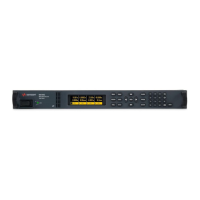
